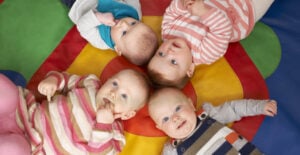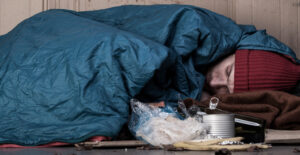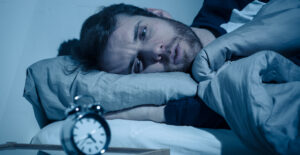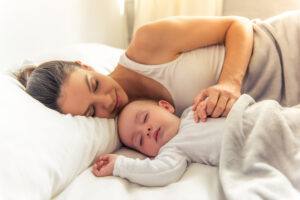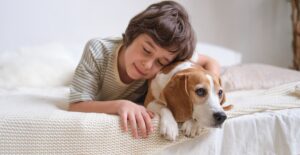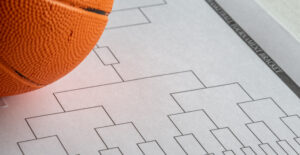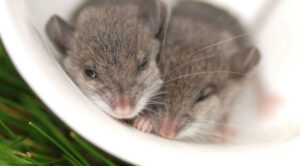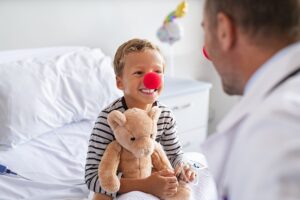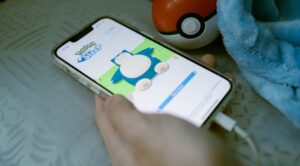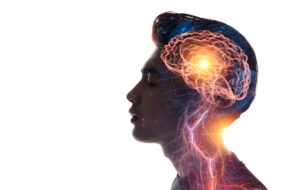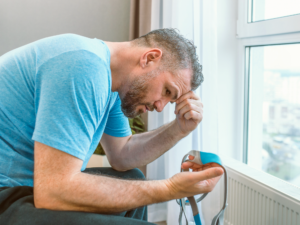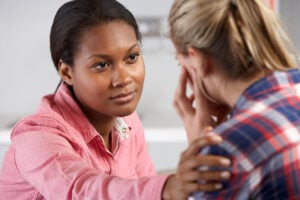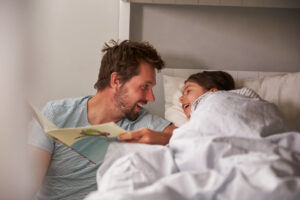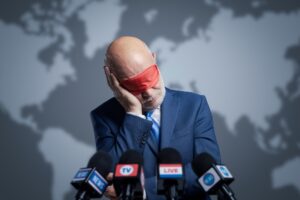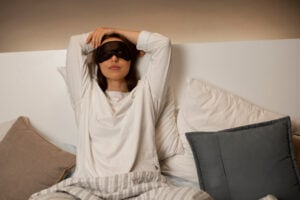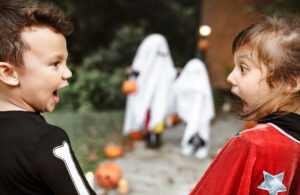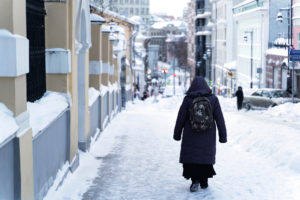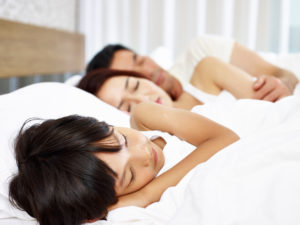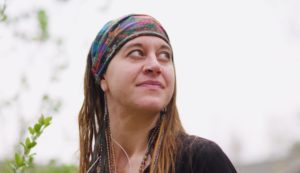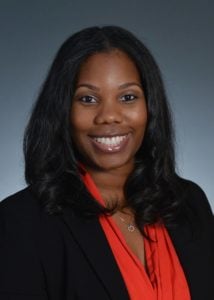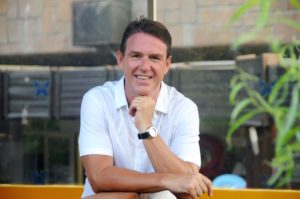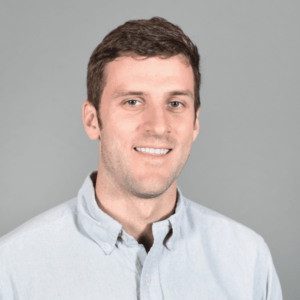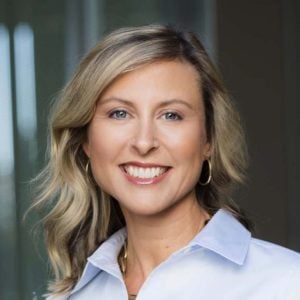Raising a Rested Child: An Interview with Dr. Chris Winter
| Key points |
|---|
|
Introduction
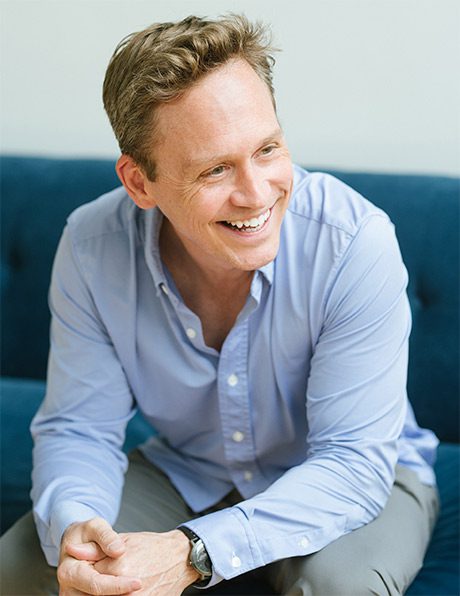
Chris Winter is a Virginia-based, board-certified sleep medicine specialist, and a board certified neurologist. His second book, The Rested Child, debuts this month, and we sat down to chat with Dr. Winter about sleep patterns in children and what motivated him to write this book.
As Winter explains, there are numerous books with information on how to get your kids to sleep, but precious little on the signs and symptoms of possible sleep disorders in children. As a result, his goal is to collaborate with parents, teachers, and other people who work with children and to help them recognize the signs for potential sleep disorders. These disorders, he argues, could lie at the root of issues like poor performance in school, difficult behaviors, or trouble focusing.
In our interview below, we discuss newborns’ sleep patterns, the growing numbers of sleep disorders in children, and why no one should be diagnosed with ADHD without first having a sleep evaluation.
The conversation has been lightly edited and condensed for clarity.
On why he wrote The Rested Child…
I felt like if you were to walk up to people and say, “Kids sleep book,” they would say, “Oh I read a couple of them when my wife was pregnant. We really liked [the Ferber Method], or we really liked BabyWise.” Somehow we’ve linked a kids sleep book with how to get your baby to sleep through the night and take a pretty decent nap.
We treat kids in our clinic and we treat a lot of them. And identifying that your child has a sleep problem and getting the treatment for it can be remarkably impactful to a kid who thinks that they’re not good in school, who’s taking medications unnecessarily for a mood disorder that may or may not really exist. They just have something wrong with their sleep. So I got really excited to write the book because I felt like there wasn’t anything really out there giving that parent, teacher, or healthcare professional the support to deal with that person.
One of the wonderful things about this time period is that we’re arriving at a place where sleep is something that people like to talk about…Sleep and the brain is so fascinating. And it’s this awesome intersection of mysticism and true science — and a relatively new science that we’re finding out about. Couple that with the idea that people are now thinking about sleep more as a modifiable variable and less as a trait. So I think people come with a fantastic amount of knowledge.
With that knowledge, sometimes when it’s not explained properly, or laid out in full, some of the messages can get muddled. And when that happens, it can start to create anxiety. And when you start to couple fear with anything…bad things really happen.
“I think parents know a lot. And they definitely know a lot about their child, more than I will ever know. So we're just trying to come together in this little sleep summit. You tell me a bit more about your kid and let's make it more personal to them. And I'm going to maybe correct a few little things you might have misunderstood from science and together we're going to make your kids sleep the best he's ever slept.”
I think parents know a lot. And they definitely know a lot about their child, more than I will ever know. So we’re just trying to come together in this little sleep summit. You tell me a bit more about your kid and let’s make it more personal to them. And I’m going to maybe correct a few little things you might have misunderstood from science and together we’re going to make your kids sleep the best he’s ever slept.
On the rise of diagnoses of sleep disorders in children…
There are more sleep disturbances in kids, and they’re growing. Even if you just look at breathing disturbances and sleep apnea, which tends to go along with weight. So as your populations tend to be heavier, and experience more issues with obesity…sure, they’re going to have more trouble with things like diabetes and insulin resistance. But they’re also going to have a lot more issues with sleep.
So I do think that between technology and children, kids’ weight, other medications that they’re on for other disorders — and that may be fantastically appropriate for those conditions, but do carry with them some sort of sleep side effects — I think there’s probably more sleep problems now than there have been in the past.
And the problem is, as a medical doctor, I received a one hour lecture on sleep during the four years I was in medical school. And when you start looking at the most common complaints that people have when they go to see a doctor, one of them is fatigue and sleepiness, that’s in the top seven. The other is, “I can’t sleep.” That’s in the top seven, as well.
So two of the top seven complaints we have, our doctors are not getting trained on how to deal with. So when you go to see your pediatrician, there’s a very good chance that he or she doesn’t have any real understanding or expertise of the situation, or the medication that they’re giving you.
So it’s a real black hole for something that’s incredibly common. To me, the quickest way to get these things taken care of is to plant seeds in the mind of the parents. So even if you think, “My child has narcolepsy. I read this book that Chris wrote, and by God, I need help.” Even if you’re wrong, at least you’re arming yourself with the understanding that the behavior that you witnessed when you were spending the night in a hotel room with your kid at the soccer tournament, and he kicked violently all through the night, is not normal.
“To me, the quickest way to get these things taken care of is to plant seeds in the mind of the parents…Even if you're wrong, at least you're arming yourself with the understanding that the behavior that you witnessed [may not be] normal.”
So it’s okay for you to seek more information and understanding about sleepwalking, the crazy teeth grinding, the unusual vocalizations and screaming that happen at night. The same mentor who told me 99% of sleep problems are parent sleep problems, would always tell parents to never watch their kids sleep. Kids do crazy stuff at night and if you watch it, you’ll think every kid has a problem.
But if your kid’s banging holes in the walls or ripping his bed to pieces at night or screaming out, you might want to pay attention to that. And at least start asking some questions if somebody might be able to help you.
On how to teach children to sleep…
I think that what we’re getting at is probably going back to nature vs. nurture. So are there genetics that influence sleep amount, sleep need, the way we deal with sleep when we don’t get it? Absolutely. But the parents also have a heavy influence when it comes to sleep…and one of the things I hope I made clear in those first few chapters is that, to some degree, sleeping is a skill. The mindset, the anxieties, the expectations we take with us into the bedroom, often start at a very young age.
“…sleeping is a skill. The mindset, the anxieties, the expectations we take with us into the bedroom, often start at a very young age.”
When an adult comes in [to my office] and says, “Oh doctor, I’ve been a bad sleeper since I was a kid.” I find that sentence to be absolutely fascinating. What does that mean? Like you fall out of bed a lot?
What is a bad sleeper? And how much of that is something that’s artificially constructed in our mind versus somebody who truly has a sleep problem?
So yeah, I think that parents play a big role in these types of things. Left to their own devices and with a little bit of help, parents can learn to really guide their kids into better sleep patterns and recognize problems when they exist.
On what he tells new parents…
Number one, your child sleeps, it’s impossible not to. Now, what might be happening is that your child is not sleeping in a way that’s predictable and efficient. And that’s where, as a parent, you can really struggle.
I think that with parents, understand that your kid’s going to do what he needs to do and you’re not going to really screw that up. We don’t have as much control over the situation as one might think.
A lot of times in sleep, we talk in averages. “Eight hours of sleep. Great.” Eight hours of sleep is probably a pretty good number for the average individual. But if you’ve ever looked at the bell curve distribution of sleep need in an adult, not to mention a child, it’s quite vast.
And what’s interesting is in the media, we never talk about how much food your kid should be eating. If you have a kid who is an elite swimmer, he swims five hours a day versus a kid who mainly sits on the couch and plays video games. Well, that caloric intake might be quite different there. So just to say 2,600 calories makes absolutely no sense.
But we talk in terms of that with sleep all the time. And that’s fine to give a sense of a ballpark need. “Okay, your kid is 17 months old, somewhere between nine hours to 17 hours might be appropriate.” Well, that’s a big variation. And for the kids who want to sleep 17 hours because you inherited that gene from mom, they seem to be great sleepers.
Then your second kid comes along. He’s like an 11 hour guy. So everything you did for the 17 hour sleeper is out the window, because when we put him down, he’s looking at us like he’s more awake than we are. So it’s that expectation and understanding of how sleep works in a kid. How is it changing over their lifetime?
On the role of sleep disruption and ADHD…
In the past, the relationship has always been, “My child primarily has ADHD. And because of that, they are struggling with their sleep, either because of the ADHD itself, or perhaps the medications or treatment that are being used to deal with the attention problem.”
And just for the record, I believe ADHD is a real thing. It’s not made up. The issue becomes, in addition to ADHD as a primary cause, can other things lend themselves to attention problems or perhaps even looking like ADHD? I believe the answer is yes. And I think sleep problems are one of them.
You may have found that after a string of particularly bad nights of sleep, you may not have been the sharpest at your job the next day. So that’s always been the obvious relationship.
The new relationship is, could the sleep problem actually not be the secondary problem, but the actual primary problem? And this is not a theory that I’ve come up with. It’s just brilliant people in the field of sleep that I pick and choose from. So the idea that ADHD, in part for some people, could be a manifestation of dysfunctional sleep, particularly in a kid, is really the relationship that I think most people are interested in.
I don’t think anybody should be diagnosed with ADHD until they’ve had a sleep evaluation. I don’t see the real harm in it. If we find that your kid’s sleep is perfectly normal, and he or she’s got ADHD, then okay, great. At least we checked. Versus just kind of plowing forward with some sort of therapy, which is probably going to work.
But the lingering question is, if your kid has attention problems, he’s hyperactive, and you give him a stimulant, and suddenly he is concentrating better and not hyperactive. That’s kind of interesting that the hyperactive kid who loves to climb up on that lamp in the living room is suddenly settled by a psychomotor stimulant.
“I don't think anybody should be diagnosed with ADHD until they've had a sleep evaluation. I don't see the real harm in it.”
You know why would that be? One theory could be, maybe that child is excessively sleepy, and you’ve made him less so with that medication.
The final word…
I think back to when my first child was born. We came home, we put her in that little chair that kind of bounces. It’s got a little angle, and I remember sitting there and we looked at each other like, “Well, God now what?” We’re pretty smart people. But I think when it comes to sleep and our kids, we don’t really get a lot of instruction. It’s something we talk a lot about, but not in ways that might be particularly helpful for parents.
I hope people find this funny and humorous, easy to read, but helpful. And even if it’s not helpful for your child, if you’ve got a friend or a sister who’s got a kid and you’re reading this book and thinking, “Oh my God, this sounds like Charlie, doesn’t it? Hey, Steve, read this. Does it remind you of Charlie?” It always comes better from a parent or a friend or a family member than it does the doctor.
Whenever I work with a sports team, I always tell people, “Look, the first thing I’m here to do is to create a culture where we talk about sleep. It’s out in the open your hamstring hurts, let’s talk about it so we can figure out we need to do something.” But we don’t sometimes talk about sleep in meaningful ways. So my hope is this book creates a conversation about it, because I don’t think we can talk about it too much. And so when you’re out with your friends, and you’re talking about, “My kid does this in his sleep and I read something about that one time,” my hope is that this gets people talking, and moving in directions of finding that solution.




